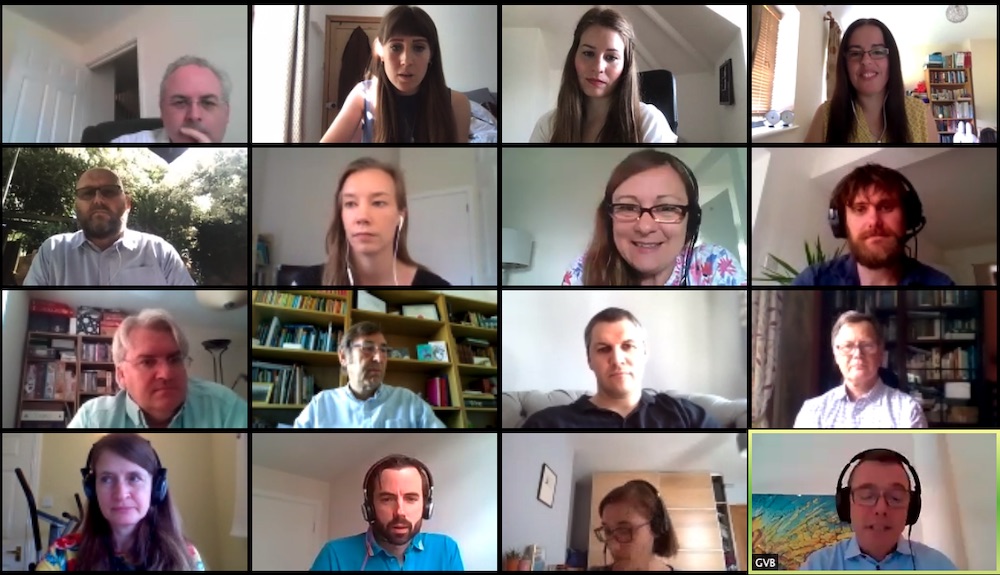On behalf of the Researchfish Steering Board

We are working through extraordinarily challenging times, no matter what role we undertake. All of us have been affected by the COVID-19 pandemic in ways we could not have foreseen eight months ago, and all of us are adapting to new ways of doing things both at work and in our personal lives too.
This broader context has influenced our discussions at the Researchfish Steering Board since March 2020. For those of you that are not familiar with this group, the Researchfish Steering Board is made up of representatives from all aspects of the Researchfish community e.g public funders, charitable funders and research organisations and it helps Interfolio UK steer the direction of the Researchfish platform. The members of the group also discuss their own policies and processes around the use of the platform with the intention of sharing/establishing best practice and developing an aligned approach where possible.
When the group met in March 2020, we reflected on how quickly things had changed, how we were meeting virtually for the first time and how lovely it was to see people’s children and/or pets as they came into view. We wondered if the reflective, challenging conversations we were used to having face to face would still be as effective via the video conference we had hastily arranged. Even at this time, we wondered how all this was affecting the research community. This meeting was just after the 2020 multi-funder submission period (i.e. when the majority of the funders in the UK choose to collect information from their funded researchers) *, and reflecting on this we very quickly agreed that our usual post-annual Researchfish submission period actions would need to look quite different. In general, funders present decided not to chase the small number of award holders who had not been able to submit their information in Researchfish.

By the time the Researchfish Steering Board met in June 2020 the full and growing human cost of the pandemic was all too real. Our previous concerns about video conferencing were seemingly insignificant in contrast to the sheer scale of the loss of life and the challenges faced by health care systems around the world. We reflected on the way in which scientists and research were now in the public consciousness, and how in some cases the uptake of research knowledge into policy and practice was happening at lightning speed. We realised, however, that much research all over the UK had been seriously impacted as the opportunities to work had been curtailed, members of the public could not engage, and the research community was either returning to clinical duties, or balancing caring commitments at home with working remotely. We knew that this exceptional period of time was going to have a profound effect on all our lives to come. We also had tentative conversations at our meeting about how our work could help to understand the effect the pandemic may be having on the research ecosystem. There were some initial conversations about the timing of the multi-funder submission period for 2021, and we agreed that we would continue to talk and ensure that research organisations and funders using Researchfish would do our best to act together to ensure as much consistency as possible during a time of great uncertainty. The minutes from the meeting are available in the knowledgebase for those who have a Researchfish account.
By the time of our September Researchfish Steering Board meeting the scale of the pandemic was much better understood but fears of the second wave that is now upon us were already very real and gaining pace. Research organisations and funders spoke of many different scenarios describing the effect of the pandemic. In some cases, scientists were speaking directly to policy makers within the research community under huge pressure to find the answers to key questions. In other cases, research activity had slowed, particularly as families struggled to cope with balancing caring commitments and work, researchers had been ill themselves or called back to support frontline care. Delays in publication, due to the shutdown of academic publishers’ offices and presses, was another factor. At the steering board we again discussed the need for consistency and clarity. With this in mind, we agreed that the submission dates for the multifunder submission period in 2021 should remain constant (1st February to 11th March 2021*), and discussed a number of options including the possible use of existing processes to temporarily exempt researchers seriously affected by the pandemic from submissions (i.e. through justified requests via university research offices for changes in response codes for particular researchers) to enable the flexibility we all know will be needed. We were unanimous in acknowledging that some researchers may have fewer outcomes to report at this time but that everyone should be encouraged to report what they could as we need to continue to monitor the research ecosystem. This would also help the sector understand the effect the pandemic has had on the research community both in 2020 and in the years to come as we all adjust to a new normal.
We hope that by providing clear guidance now we can help research organisations and researchers to prepare, and make the 2021 submission as efficient as possible. In the meantime, we hope that all of our community can stay safe and well in the months ahead.
* The majority of research funders in the UK use the multi-funder submission period, however, please do check with relevant funders as there are some which need to collect information outside of this window. Once a funder has set up a submission period it is visible on the ‘Our Community’ tab in the Researchfish platform.
If you have any questions or comments please contact us via support@researchfish.com